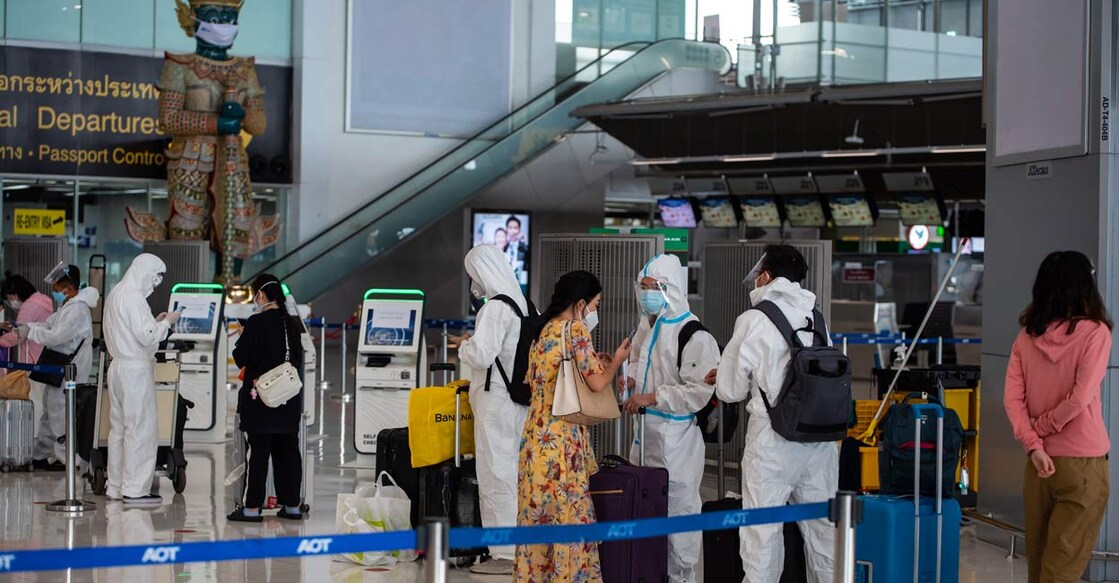Random COVID testing for arriving international passengers from Dec 24

Mail This Article
New Delhi: The government on Thursday said that two per cent of passengers arriving in each international flight will be subject to random coronavirus test from December 24.
The Union health ministry has written to the civil aviation ministry in this regard amid an increase in coronavirus cases in many countries.
Following random testing, if anybody is found Covid-positive, the sample should be sent for genomic testing at the designated INSACOG laboratory network, Union health secretary Rajesh Bhushan wrote in a letter to his civil aviation ministry counterpart Rajiv Bansal.
After submitting samples for random testing, travellers will be allowed to leave the airport.
A copy of the positive report shall be shared with Integrated Disease Surveillance Programme at shoc.idsp@ncdc.gov.in by the concerned testing laboratory (besides sharing with the APHOS) to be in turn shared with concerned state or Union Territory for further follow-up action, Bhushan said.
Bhushan in the letter stated that as a result of its sustained efforts and focus on the five-fold strategy of test-track-treat-vaccination and adherence to Covid-appropriate behaviour, India has been able to effectively restrict the spread of COVID-19 transmission in the country so far.
However, globally the number of new cases of COVID-19 continue to remain alarmingly high, with around 5.9 lakh daily new cases reported on average during the week ending on December 19, 2022.
This spike in the trajectory of COVID-19 is particularly concerning with respect to Japan, United States of America, South Korea, Brazil, France and China where cases are increasing in a sustained manner, he stated.
"...it has been decided that ministry of civil aviation in coordination with airport operators and Air Port Health Offices (APHOS) shall ensure" two per cent of the total passengers in the flight shall undergo random post-arrival testing at the airport, Bhushan said in the letter.
Such travellers in each flight shall be identified by the concerned airlines (preferably from different countries), the letter said, adding that after submitting the sample passengers shall be allowed to leave the airport.
"This arrangement shall come into practice with effect from 10:00 AM on Saturday, December 24, 2022," the letter said.
Bhushan requested the ministry of civil aviation that testing may be done at a subsidised and uniform rate across all international airports.
These post-arrival protocol were also issued by the health ministry separately in its Guidelines for International Arrivals (in supersession of guidelines issued on the subject on November 21 2022).
According to the guidelines, all travellers should preferably be fully vaccinated as per the approved primary schedule of vaccination against COVID-19 in their country.
In-flight announcement about the ongoing COVID-19 pandemic including precautionary measures to be followed (preferable use of masks and following physical distancing) shall be made in flights/travel and at all points of entry.
Any passenger having symptoms of COVID-19 during travel shall be isolated as per standard protocol i.e. the said passenger should be wearing mask, isolated and segregated from other passengers in flight/travel and shifted to an isolation facility subsequently for follow up treatment.
Thermal screening should be done in respect of all the passengers by the health officials present at the point of entry, the guidelines said.
The passengers found to be symptomatic during screening will be immediately isolated, taken to a designated medical facility as per health protocol (as above).
All travellers should self-monitor their health post arrival and also shall report to their nearest health facility or call national helpline number (1075)/ state helpline number in case they have any symptoms suggestive.
Children under 12 years of age are exempted from post-arrival random testing. However, if found symptomatic for COVID-19 on arrival or during the period of self-monitoring period, they shall undergo treatment as per laid guidelines.

